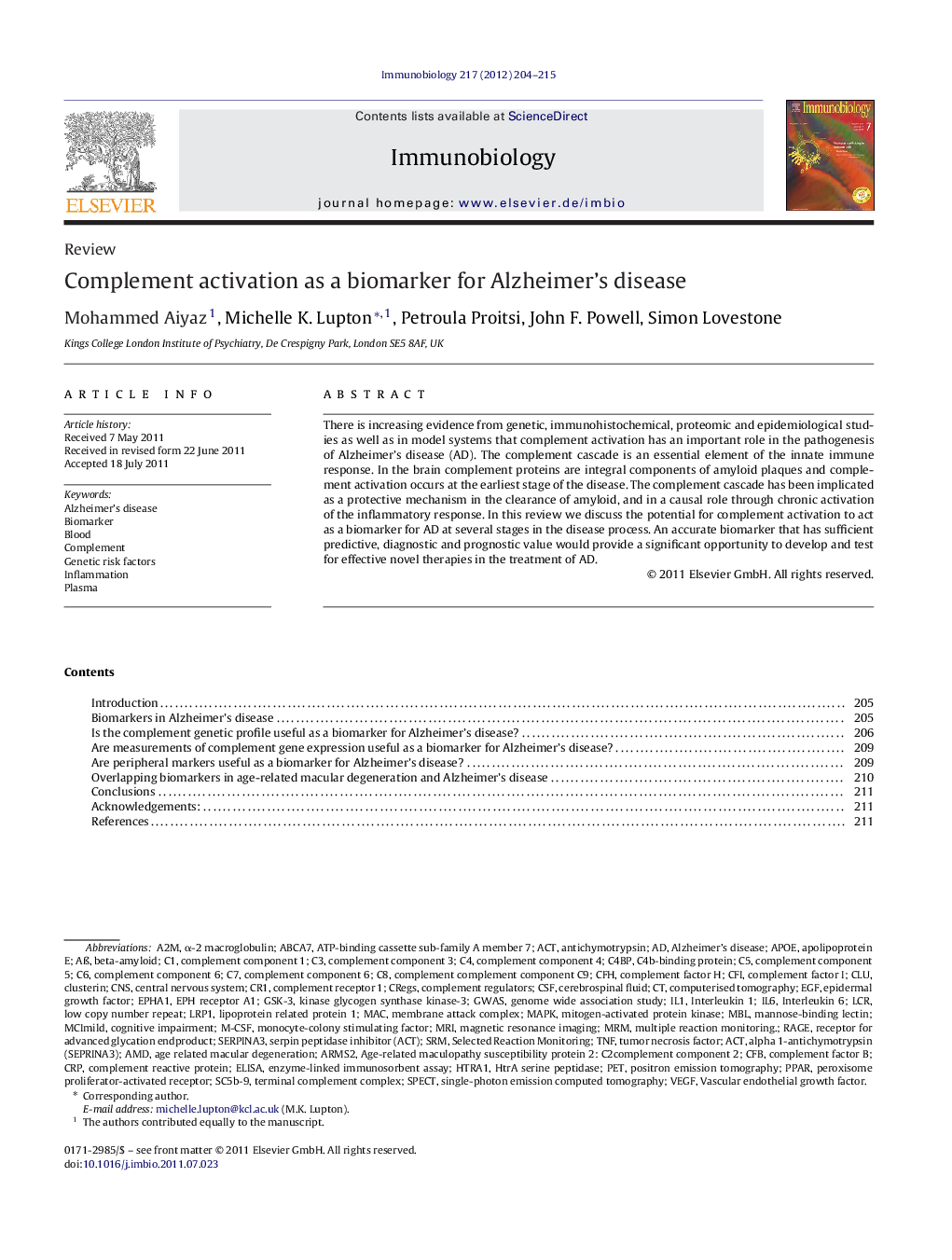| Article ID | Journal | Published Year | Pages | File Type |
|---|---|---|---|---|
| 10941095 | Immunobiology | 2012 | 12 Pages |
Abstract
There is increasing evidence from genetic, immunohistochemical, proteomic and epidemiological studies as well as in model systems that complement activation has an important role in the pathogenesis of Alzheimer's disease (AD). The complement cascade is an essential element of the innate immune response. In the brain complement proteins are integral components of amyloid plaques and complement activation occurs at the earliest stage of the disease. The complement cascade has been implicated as a protective mechanism in the clearance of amyloid, and in a causal role through chronic activation of the inflammatory response. In this review we discuss the potential for complement activation to act as a biomarker for AD at several stages in the disease process. An accurate biomarker that has sufficient predictive, diagnostic and prognostic value would provide a significant opportunity to develop and test for effective novel therapies in the treatment of AD.
Keywords
Related Topics
Life Sciences
Biochemistry, Genetics and Molecular Biology
Cell Biology
Authors
Mohammed Aiyaz, Michelle K. Lupton, Petroula Proitsi, John F. Powell, Simon Lovestone,
